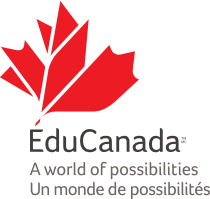Apply today: Emerging Leaders in the Americas Program
January 16, 2024 – Global Affairs Canada’s Emerging Leaders in the Americas Program (ELAP) is now accepting applications for the 2024-2025 academic year!
The program offers scholarships to students from Latin America and the Caribbean wishing to pursue short-term exchange opportunities at post-secondary institutions in Canada.
Canadian postsecondary institutions must apply online on behalf of students. Interested students should contact their home institution’s international office to learn about institutional partnerships and collaborations with Canadian institutions.
- Program name: Emerging Leaders in the Americas Program
- Funding organization: Global Affairs Canada
- Target audiences: Canadian postsecondary institutions
- Duration: 4 to 6 months
- Inclusions: airfare, select living expenses, health insurance, visa or study/work permit fees and other eligible expenses
- Deadline: March 19, 2024
For more information, visit the Emerging Leaders in the Americas Program.
To learn more about this experience, hear Jesus Fajardo’s story as a former ELAP recipient.
Emerging Leaders in the Americas Program: Jesus Fajardo
Transcript
Jesus Fajardo: My name is Jesus Fajardo
On-screen text: Jesus received a scholarship under the Emerging Leaders in the Americas Program (ELAP) in 2019.
On-screen text: ELAP supports the next generation of leaders in Latin America and the Caribbean by offering short-term exchange opportunities in Canada.
Jesus Fajardo: When I applied to the ELAP program I was working on my Ph.D back in Argentina but I'm originally from Venezuela where I did my undergrad and my host canadian institution was the U of M the University of Manitoba, in Winnipeg.
On-screen text: What inspired you to apply to ELAP?
Jesus Fajardo: First of all, my co-advisor also got into the ELAP program when he was a Ph.D candidate himself.
Jesus Fajardo: So he always praised the experience and recommended it to me.
Jesus Fajardo: I think the second reason was that I was familiar with the research work of the principal investigator in the house laboratory in Manitoba, since he's a reference in the field and we knew that he was going to be ready to discuss our work with him in person and furthermore to have the opportunity to work closely with them.
On-screen text: What did you study?
Jesus Fajardo: I was interested in researching biomedical problems, particularly a microwave imaging problems, and I was also interested in applying artificial intelligence techniques to enhance the microwave tomography.
On-screen text: What advice would you give to students?
Jesus Fajardo: Yeah, I would say to them that if they meet the criteria to apply, I would definitely recommend experience even if they don't know people from Canadian institutions.
Jesus Fajardo: I just wanted to say that I'm really grateful for the opportunity I had and I look forward to seeing this program to keep growing and making ties between Canada and Latin America.
- Date modified:

